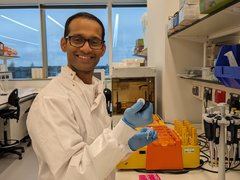Our research projects
Find out more about the research projects you're currently helping us to fund around the country.
120 results found.
Combining drugs to create a new treatment for follicular lymphoma - Dr Riches
In this project Dr Riches wants to find a new combination of drugs to create a new, more effective treatment for people with this disease.
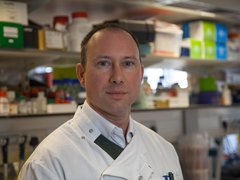
Finding new, and kinder treatments for diffuse large-B cell lymphoma - Professor Franzoso
In this project, Professor Franzoso is looking to understand which people with diffuse large-B cell lymphoma might benefit from a new drug.
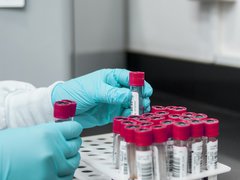
Developing more effective treatments for people with blood cancer - Professor Spencer
In this project Professor Spencer is working to develop new, alternative drug treatments for people with blood cancer.

Creating a new way to identify alterations that cause ALL in children - Dr Ryan
In this project Dr Sarra Ryan is using new technologies to identify alterations in the DNA of blood cells in children with ALL.

Understanding more about the causes of myeloma so new screening tools and drugs can be developed
Professor Chris Bunce wants to understand more about the root causes of myeloma so people at an increased risk of this disease can be screened and monitored and new drugs developed.
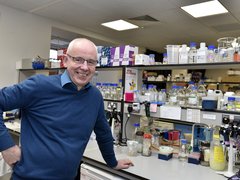
Understanding key molecules that help myeloma cells to grow in number and thrive
Professor Karadimitris and his team want to understand more about a specific molecule that can cause people with MGUS to go on to develop myeloma.
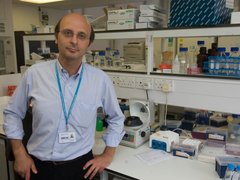
A new approach to treating chronic myeloid leukaemia (CML)
Professor Helgason is researching a new way to treat CML by combining drug treatments with other treatment methods.
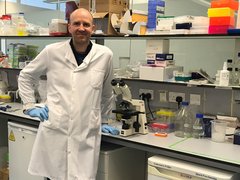
Understanding how we could make better drug treatments to target acute myeloid leukaemia (AML)
Dr Payne wants to understand more about a specific alteration that causes acute myeloid leukaemia (AML), to help develop new, more effective drug treatments with fewer side effects.
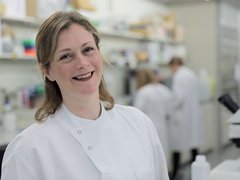
Finding out how our genetic code might cause myeloproliferative neoplasms (MPN)
Professor Anderson is studying the DNA (genetic code) of people with myeloproliferative neoplasms (MPN) to understand what might be responsible for causing it.
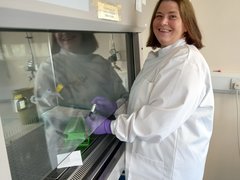
Developing a new way to treat T-cell acute lymphoblastic leukaemia (T-ALL)
Professor Rabbitts hopes to develop a new treatment for T-cell acute lymphoblastic leukaemia (T-ALL) with fewer side effects.
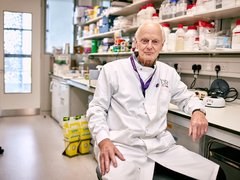
Understanding how plasma cells become cancerous in myeloma
Professor Tooze hopes to understand more about how plasma cells become cancerous.
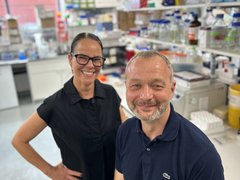
A new way of diagnosing and monitoring myeloma
Dr Chan and her team are developing a new technique to diagnose and monitor people with non-measurable myeloma (NMM).
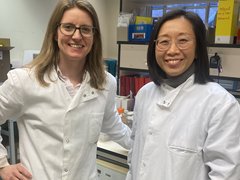
Developing a more effective CAR-T therapy to treat myeloma
Dr Maciocia is researching how to make CAR-T cells last longer so that people with myeloma remain cancer-free.
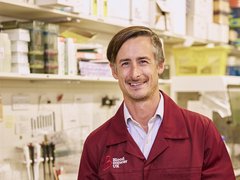
Creating new ways to prevent the development of myeloid blood cancers
Professor Vassiliou wants to understand how myeloid cancers develop before people start showing any symptoms to create new ways to prevent people developing these blood cancers.
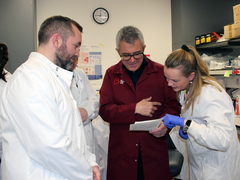
Developing new drug treatments for mastocytosis - Professor Nerlov
Professor Nerlov wants to develop a new drug that can effectively target and treat mastocytosis.
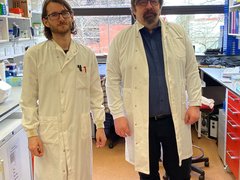
Developing a CAR-T therapy for children with myelodysplastic syndrome (MDS) - Dr Ghorashian
Dr Ghorashian is researching using CAR-T therapy to develop a safer and more effective way to treat children with MDS who are at risk of their cancer developing into AML.
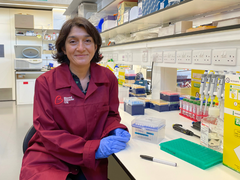
Finding new drug treatments that help the body’s immune system to treat myeloma
Dr Dimeloe plans to test drugs used to treat other diseases to see if these can help the body’s immune cells to destroy cancerous myeloma cells.
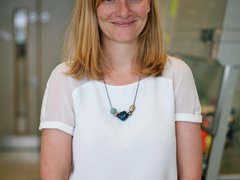
Unlocking a new, less harmful way of treating acute myeloid leukaemia (AML) - Professor Lacaud
Professor Lacaud's research is looking to understand more about the KAT6A protein and how it could be used as a kinder treatment for acute myeloid leukaemia (AML).
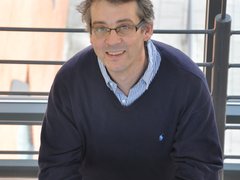
Finding a less harmful way to treat blood cancers caused by the Epstein-Barr virus (EBV)- Professor West
Professor West is conducting research to find a new drug treatment that targets EBV-positive cancer cells.
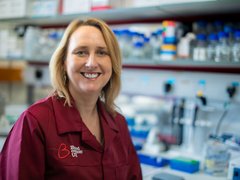
Researching the role of the KCNJ2 gene in chronic myelomoncytic leukaemia (CMML) - Dr Batta
Dr Batta is researching the role of a specific gene called KCNJ2 and how it causes CMML cancer cells to grow.
